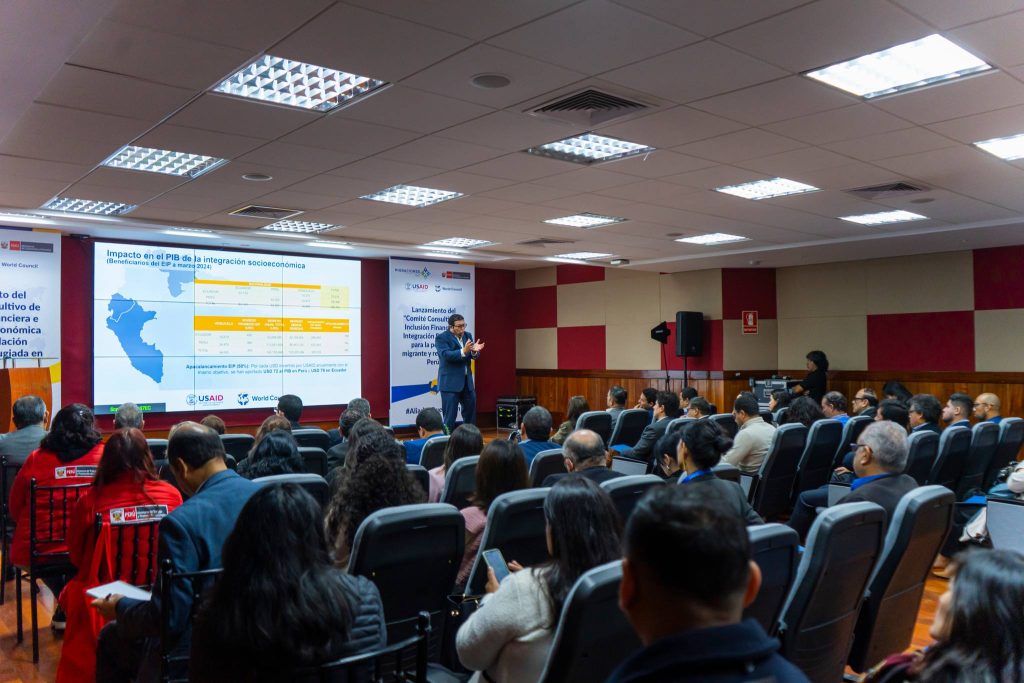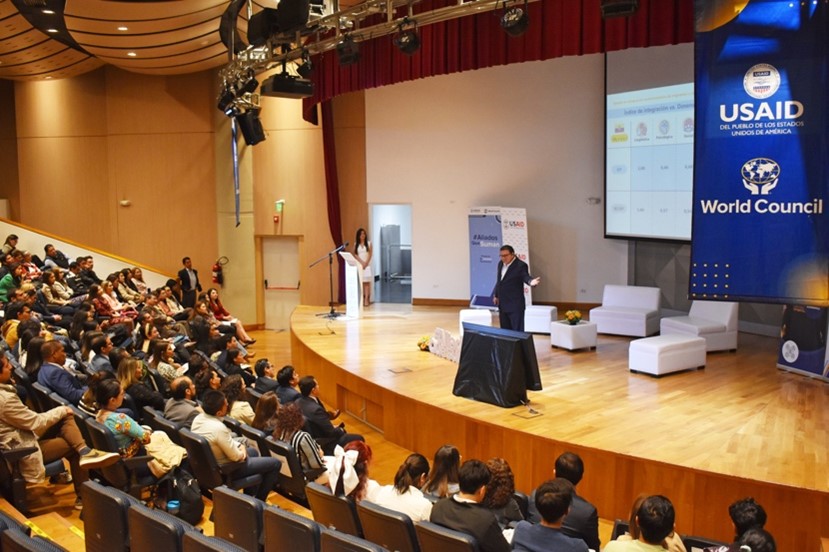US credit union representatives visited Ecuador and Peru this month to see how credit unions are helping Venezuelan migrants access financial services.
The visit was organised under the Economic Inclusion Program (EIP) led by the US Agency for International Development (Usaid) and the World Council of Credit Unions (Woccu), in partnership with the Worldwide Foundation for Credit Unions (WFCU).
The programme offers economic opportunities and financial services for Venezuelan migrants and refugees and their host communities in the target cities of Lima (Peru), and Quito and Guayaquil (Ecuador), and several rural areas of each country.
As part of the study tour, one US representative from Virginia Credit Union (Vacu) connected with Peru’s EIP programme and visited the Peruvian credit union system through meetings with the National Federation of Credit Unions (Fenacrep), regulators, and EIP partners. In Peru, the Vacu representative learned that credit unions can provide services in rural areas by establishing rural and mobile agents.
“Members of credit co-operatives go from being independent people to being agents of political change. This makes credit unions achieve financial inclusion,” said Juan Carlos Urgiles, general manager of Jardin Azuayo, a credit co-operative based in Paute, Ecuador.
During the second week of the study tour, ten US credit union representatives toured Ecuador, meeting with several national organisations, including the Financial Policy and Regulation Board and the Superintendence of the Popular and Solidary Economy.
Participants learned about some of EIP’s initiatives to expand financial inclusion, drive innovation and serve migrant populations through financial education, employment and entrepreneurship training and gender-based inclusion.
“Victims of gender violence can only achieve economic independence by receiving psychological stability, linked to an economic stability plan known as ‘plan de vida’ [life plan] and financial services,” said Oscar Guzman, chief of party for EIP. “This plan guides them to leave the circle of violence and achieve economic autonomy through livelihood activities (entrepreneurship and employment).”
The Ecuador and Peru study tour was sponsored by the Virginia Credit Union and forms part of Global Bridges, an engagement initiative of WFCU and Woccu that connects networks across both entities to advance solutions to shared global challenges in the global credit union industry.
New Consultative Committee of Financial Inclusion for Migrants and Refugees in Peru

Following the visit, the EIP joined the country’s Ministry of Economy and Finance and the National Superintendence of Migration to announce the creation of the Consultative Committee of Financial Inclusion for Migrants and Refugees in Peru.
Alongside the EIP and the ministry, the commission will include representatives from Peru’s Superintendency of Banking, Insurance and AFP, the Ministry of Justice and Human Rights, the Ministry of Foreign Affairs, ILO/IOM Peru, the United Nations High Commission for Refugees (UNHCR) and other stakeholders from the formal financial system.
The initiative was launched during EIP’s semiannual meeting in Peru on 27 June during which Guzmán, presented some of the findings of the project’s Study of the Integration of Migrants and Refugees.
“These results show a higher level of integration, especially in the economic dimension, for people who have participated in EIP initiatives, such as the revalidation of professional degrees, business development programs and financial education and inclusion,” said Guzman.
“Financial inclusion and the incorporation of migrants into the formal economy is also a way to combat the illegal economy of transnational criminal organizations, which take advantage of the economic vulnerability of migrants,” added Armando Benjamin García Chunga, Peru’s national superintendent of migration.
A similar meeting was held in Quito, Ecuador on 20 June, where Guzman presented relevant study results showing that EIP participants generate greater opportunities and income, and generally have a higher rate of integration.
The meeting also heard from Federico Augusti, the UNHCR representative in Ecuador, who argued the data presented by EIP should be used to work on more evidence and impact-based initiatives that ultimately contribute to best practices and public policies moving forward.

“To promote job opportunities for vulnerable communities, we must do what you, usaid and Woccu, do: knock on doors, come up with evidence and propose changes that contribute to the country’s development,” said Pablo Beltrán, the president of Ecuador’s Higher Education Council.
Other speakers included María Paulina Vega, the president of Ecuador’s Financial Policy and Regulation Board, and Anh Hua, Usaid Ecuador’s democracy officer, who invited attendees to continue joining initiatives that promote the socio-economic integration of migrants, as they create opportunities and contribute economically to their host country.

